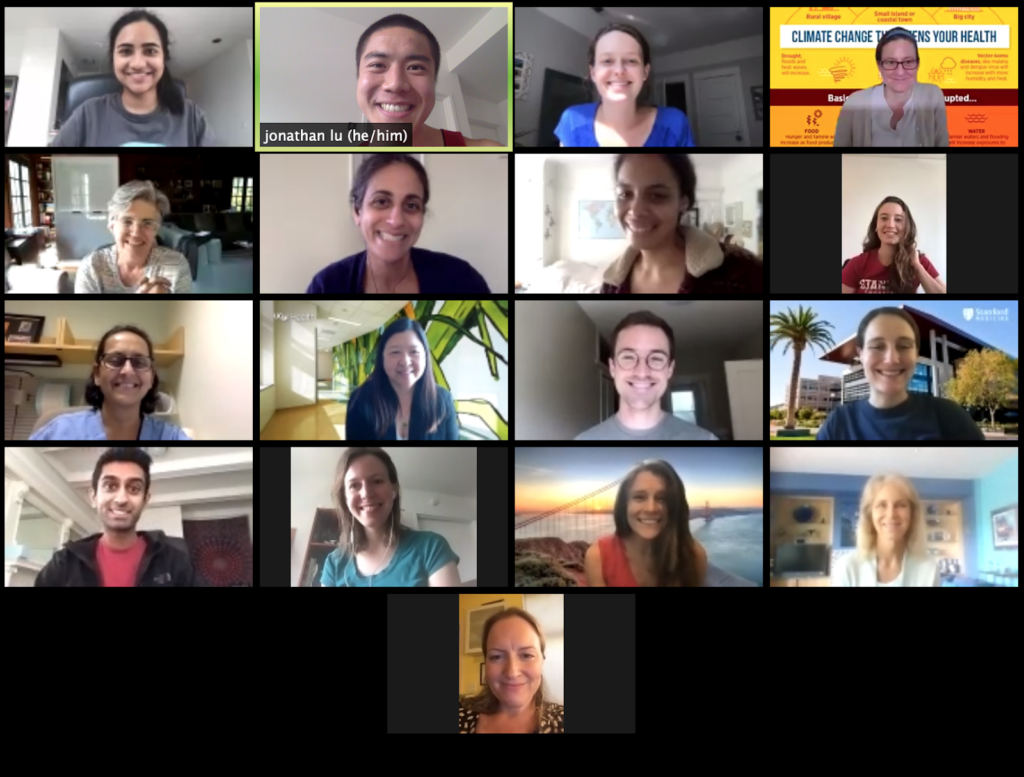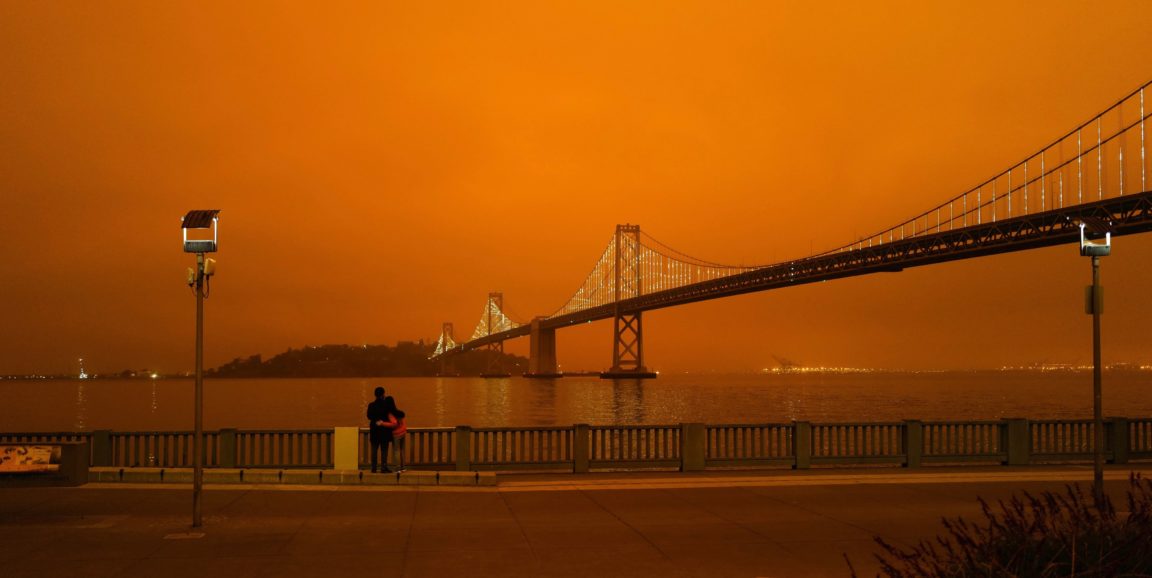"Don't worry, the grownups have it figured out."
I was in third grade and terrified. My teacher was teaching us about global warming -- wildfires, droughts, hurricanes, floods -- the destabilization of our ecosystem, the destruction of our future.
I was scared. But I calmed down: "It's OK, the adults will solve it."
Fast-forward to junior year of college. I saw environmental protections torn down, and the United States withdraw from the Paris climate agreement. My parents told me about the red and gray wildfire smoke coloring the Bay Area sky.
The grownups hadn't figured it out. Then who would?
I knew I had to act. In college, I spent thousands of hours organizing with fellow students and stakeholders to design and advocate for climate policy in New Jersey.
When I arrived at Stanford for medical school last year, I wasn't sure at first how to continue my environmental work, but I knew it was important. The environment is health. Ask any doctor who sees their asthmatic patient choking on wildfire smoke.
Taking action with fellow students
Last September, while we were studying for our molecular mechanisms final, the Global Climate Strikes happened. My classmates - Adary Zhang, Santiago Sanchez, Ashley Jowell -- and I put together a lunch talk about climate and health.
We talked about the health effects of air pollution, extreme heat, floods. We talked about how environmental disasters are unjust -- that they always hit low-income communities hardest, even if they contributed least to the problem. And we talked about the problem of greenhouse gas emissions and how we cannot reach our climate goals if the health care sector doesn't cut its share.
We decided to form Stanford Climate and Health. We are a group of Stanford medical, physician assistant, graduate, and undergraduate students; residents; staff; and faculty who are all passionate about the intersection of climate and health.

One of our goals is to find workable ways for hospitals and health systems to reduce their emissions and build resilience toward worsening disasters, such as extreme heat, wildfires and air pollution. Taken together, this is known as "climate-smart health care."
We also need to learn more about the health effects of climate change -- the impacts on the lung, the heart, the kidney and the skin; on children, women, and the elderly; on low-income communities and people of color.
Upcoming virtual symposium
So far, we've worked with medical course directors to weave climate change into our curriculum, and we're working on deploying safe and cost-effective reusable gowns at Stanford Health Care. We are also advocating in our professional societies, including the California Medical Association and American Academy of Physician Assistants, to make climate change a priority issue for patient health. We've additionally supported a climate change vulnerability assessment for Santa Clara County.
Our first major event is coming up on Sept. 25. The NorCal Symposium on Climate and Pandemic Resilience in Healthcare is a virtual gathering, co-organized with the University of California, San Francisco, with the aim of inspiring our community to take action toward more sustainable health care.
Speakers include Cheryl Holder, MD, founder of Florida Clinicians for Climate Action and a physician leader combating climate change and other health inequities in underserved communities. Dean Lloyd Minor, MD, and David Entwistle, president and CEO of Stanford Health Care, also will be there, along with leaders from UCSF and the National Resources Defense Council.
We'll have sessions on emissions, disaster resilience, community partnerships, advocacy, food systems, and medical curriculum. We'll welcome sustainability leaders, health professionals, students and community partners from all backgrounds; and we'll encourage them to work with us to take action toward a just and sustainable future.
Because that's how change happens. It takes grown-ups and young people, deans and students, activists and innovators, front-line communities and environmental advocates, and every kind of health professional, working together as a community, to create a world where third graders don't have to worry anymore.
Jonathan Lu is a second-year medical student at Stanford who is passionate about addressing climate change and its health impacts. He is a co-leader of Stanford Climate and Health, along with Ashley Jowell, Navami Jain and Natalie Baker. You can reach them at stanfordclimateandhealth@gmail.com
Top photo by MILKOVÍ. Middle photo by Jonathan Lu.






